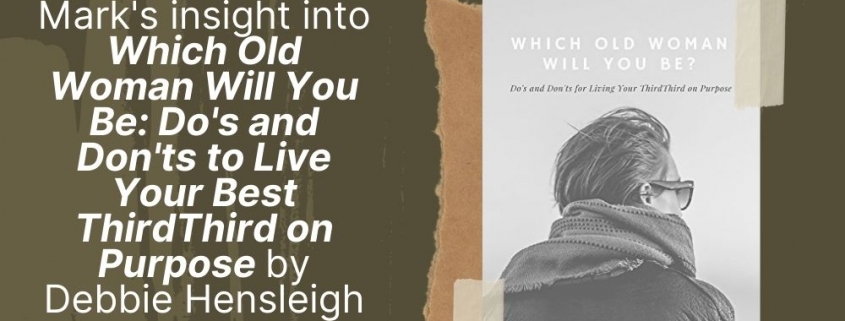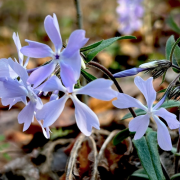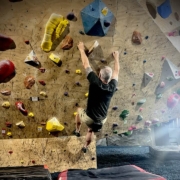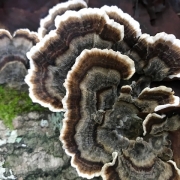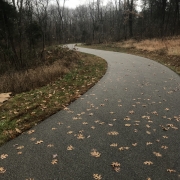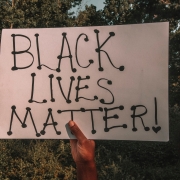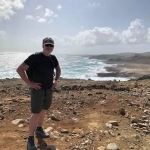Which Old Woman Will You Be? A Book Review | Healthy Aging Series: Part 16
In this week’s entry to the Healthy Aging Series, I offer my thoughts concerning Debbie Hensleigh’s book, Which Old Woman Will You Be? Do’s and Don’ts for Living Your ThirdThird on Purpose.
Hensleigh writes:
“Start being that old woman you want to be… on purpose. Determined to live on purpose, intentionally forecasting which old woman you will become.”
I enjoyed this book. Simple. To the point. I use the slogan, “You’ve got to prepare for the last
10 years of your life.” Hensleigh agrees. She begins her book talking about an experience at a
nursing home where she meets two of the residents. One woman is somebody that she admires
and the other woman, she finds annoying and even offensive. She asks herself, which old woman
will I become. Maybe a trip to the nursing home would benefit all of us.
I shared an experience in an earlier blog about an elderly man that I called “Kroger Man,” an
individual that demonstrates that there are people who have reached their 70s and 80s, that none
of us want to become. Hensleigh’s book provides a very simple but meaningful outline of
do’s and don’ts that you can begin implementing right now if you’re in your 40s and 50s to
ensure that your senior years will be meaningful and happy. I’ve used the “You have to
prepare for the last 10 years of your life” slogan because people tend to be mesmerized into
thinking that they’re never going to be old and they’re never going to have trouble as they get
older.
Hensleigh‘s book is an optimistic and positive approach to looking at preparing for your senior
years. I liked it. I keep saying that. She has seven do’s and don’ts that I believe are a wonderful
outline for preparing for those last 10 years.
The Do’s and Don’ts
1. Quit Comparing Yourself to Others.
I think we’re living in a day and age where competition and comparison are toxic. They create a
frame of mind that can ruin your happiness and well-being. Life isn’t a competition. We should
strive to become our Authentic Selves. This means living a life that is based on your values and
beliefs, living a life that is completely distinct from what you think other people want for you, or
what others want you to be. It’s liberating!
Many writers that address the issue of aging talk about the idea of writing your own script.
Don’t allow others to write the aging script for you. Be true to yourself. Don’t allow yourself to
fall victim to the social pressures of comparing your body, or your finances, or your children to
those of others. Stop!!!!
This chapter was very helpful in looking at that life that is lived on its own terms and not on the
terms of others.
2. Being More Interesting.
I remember when I was in my early 50s. I found myself to be a rather uninteresting person and I
made a commitment to becoming more interesting and started with the area of music. My son
had downloaded many songs on our computer in the 90s. He left in the 2000s and I started
exploring the computer and discovered thousands of wonderful songs and music that inspired me
to become a more interesting person.
I’ve begun the process of exploring life and exploring the world and exploring people. I’ve done
some studies on archetypes and one of my archetypes is an intellectual. I’ve discovered as a feed
that intellectual archetype I am more in tune with who I am and more satisfied with my life.
Being interesting means broadening your life and your life interest to explore this wonderful and
beautiful world and culture that we live in.
3. Refuse to Be Lonely.
Early in my educational process, one of my professors disclosed that all his relationships were
intentional. I think he meant that he had relationships, not based on the idea of numbers but,
based on what he needed and how those friendships met that need.
My mom, as she aged, developed relationships around a Hardee’s restaurant down the street
from where she lived. She would walk there every morning and spend a couple hours talking to
her friends and having coffee and a sausage biscuit. Those friends became a very important
part of her life.
I’ve developed a community of people in my life that revolve around my interest. My wife and I
share our travels, our personal development time, our TV series, and kitties. I have hiker friends.
I have intellectual friends. Of course, I have my extended family and my work family. Surround
yourself with good people.
4. Read Books
Hensleigh encourages people to be readers. I love books. Not in the same way that I love my
wife, children, and grandchildren, but I love books. Books are a way of exploring for me. My
mother introduced me to books when I was in high school, and I’ve been reading books ever
since. My office is full of books. I love buying books. I love reading books. Books scratch me
where I itch. Hensleigh suggests that books are important for personal growth and broadening
ourselves as individuals. I agree.
5. Don’t Be Boring (Or Maybe, Don’t be Bored)
I think what she is suggesting here is that we provide nourishment to our brain. She talks about
learning new things. She reminds us that nurturing our brain and providing nutrition for a brain
must be intentional.
6. Know Your Purpose
I’ve spent most of my adult life in the helping profession and certainly this is very important to
me. I work with young men largely. But I also work with people within my own agency and
love watching and helping them grow and develop as clinicians and as supervisors. I would say
that helping others is a big part of my purpose in life. I believe as you age, you’re going to lose
opportunities to be involved professionally with other people. The word Elder, or Eldership
becomes more meaningful during this time. I hear a lot of older adults talk about their
grandchildren and how important that relationship is. Eldership is utilizing the experience and
the wisdom that you have and helping others benefit from your wisdom.
I believe it’s important to have a reason to get up every morning. There’s lots of research to
suggest that having a purpose and meaning of life is very important as your age. Hensleigh has
provided several opportunities or ideas on ways to develop that purpose.
7. Don’t Get Stuck
The way to avoid getting stuck is to become more resilient. I’ve shared in the earlier blogs
about resiliency and how resiliency is the ability to bounce back from adversity. I believe this is
what Hensleigh is talking about. Developing resiliency is a very important part of aging and one
that we would all do well to begin focusing on as were younger.
Hensleigh‘s book is the Cliff Notes version of aging. Simple and to the point.
She hits on a high note. She shared some of her experiences with her physical fitness and
wellness and would probably do well to spend more time talking about that. But as far as her
focus on mental and psychological resiliency, I think she’s done a wonderful job.
Who are you becoming? I want to be the type of older man that attracts, rather than repels
others. People tend to become more isolated as they age. Maybe it because it’s partly due to
the kind of person you’ve become.
This is part sixteen in the Healthy Aging Series, written by Mark Neese, LCSW, BCBA. To see more entries in this series, click here.

